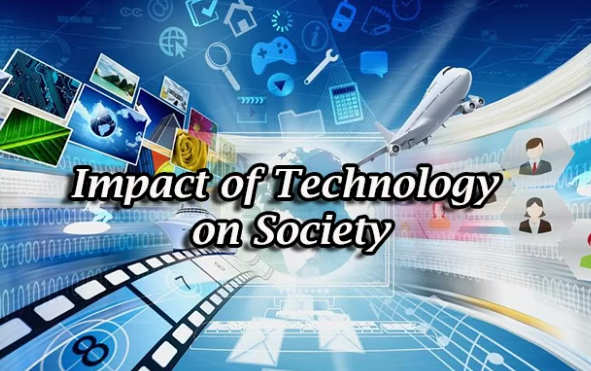The impact of technology on society in the 21st century has been profound and far-reaching. Technology has reshaped how we live, work, communicate, and interact with the world around us. Here are some of the key ways technology has influenced society:
- Communication: Technology has revolutionized communication, making it faster, more accessible, and global. We can now connect with anyone, anywhere, through email, social media, video calls, and instant messaging.
- Information Access: The internet has democratized access to information. It’s now possible to obtain information on nearly any topic at the touch of a button, empowering individuals with knowledge.
- Education: Technology has transformed education. Online courses, e-books, and digital learning platforms have made education more accessible and flexible. Additionally, students can access a vast array of educational resources online.
- Work and Employment: The digital economy and remote work have changed the way people work. The gig economy, freelance work, and telecommuting are increasingly common, and automation has impacted some job sectors.
- Healthcare: Technology has improved healthcare through telemedicine, wearable health devices, electronic health records, and the development of new medical treatments and pharmaceuticals.
- Entertainment: Streaming services, video games, and virtual reality have transformed the entertainment industry. Content is now available on-demand, and immersive experiences are more prevalent.
- Social Media: Social media platforms have become a central part of people’s lives, shaping how we communicate, share information, and interact with others. They have also influenced public discourse and activism.
- Transportation: Advancements in transportation technology, including electric vehicles, ride-sharing apps, and autonomous vehicles, are changing how we travel and impact urban planning.
- Smart Cities: Technology is making cities smarter, with advancements in infrastructure, traffic management, energy efficiency, and waste management.
- Privacy and Security: The digital age has raised concerns about data privacy and cybersecurity. It has become crucial to protect personal information and data.
- Environmental Impact: Technology has both positive and negative impacts on the environment. While it has enabled green technologies and solutions for environmental issues, it has also contributed to electronic waste and increased energy consumption.
- Social Relationships: While technology has connected people worldwide, it has also raised concerns about the quality of human relationships. The prevalence of screens and digital interactions has led to discussions about screen time, mental health, and social interactions.
- Artificial Intelligence: AI is becoming more integrated into society, impacting industries from healthcare to finance. It raises questions about job displacement, ethics, and decision-making.
- Economic Disparities: Technology has contributed to economic disparities, with some individuals and regions benefitting more than others. Access to technology and digital literacy can exacerbate these disparities.
- Ethics and Moral Issues: Technology has introduced complex ethical questions, such as those related to AI ethics, data privacy, and the ethical use of technology in areas like surveillance and warfare.
- Political Influence: Technology has transformed political campaigns, influence, and activism. It has raised questions about disinformation, cybersecurity, and political polarization.
- Innovation and Entrepreneurship: Technology has enabled entrepreneurs to innovate and create new businesses and products. Start-ups and innovation hubs have proliferated.
- Globalization: Technology has accelerated globalization, connecting people and markets across borders. It has also led to discussions about the cultural impact of globalization.
- Crisis Response: Technology has played a crucial role in disaster response, including natural disasters and global health crises like the COVID-19 pandemic.
- Elderly Population: As societies age, technology is becoming increasingly important in providing healthcare, social engagement, and services for the elderly.
These are just a few of the ways in which technology has impacted society. The effects of technology are multifaceted, with both positive and negative consequences. As technology continues to advance, society will need to adapt and address the challenges and opportunities it presents. Balancing the benefits of technology with its potential drawbacks is an ongoing challenge for individuals, organizations, and governments worldwide.




